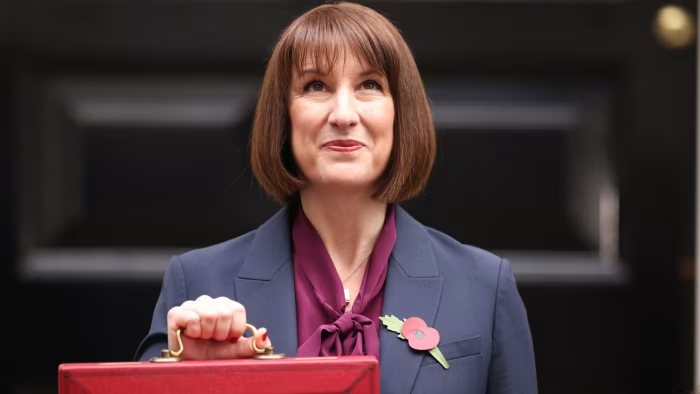ECONOMY
BOE Bond Portfolio Shift Frees Up £10 Billion for UK Chancellor Rachel Reeves

It was announced almost as a mere footnote, yet the change to how the Bank of England manages its bond portfolio has significant financial implications for the UK government. This adjustment has the potential to free up as much as £10 billion ($12.7 billion) for the Treasury in the coming years, providing a vital cushion for UK Chancellor Rachel Reeves as she seeks to keep borrowing levels in check.
While the announcement may have seemed minor at first glance, the shift in financial strategy carries considerable weight in the context of the UK’s ongoing economic challenges. By releasing these funds, Reeves now has additional resources at her disposal to navigate fiscal policy and manage the country’s debt obligations without needing to resort to increased borrowing.
The adjustment came about through a letter Reeves sent to Bank of England Governor Andrew Bailey on Tuesday, where the two officials agreed to recalibrate the cash buffer that had been set aside by the central bank to protect against potential losses on its bond holdings.
This buffer, which had been built up during times of economic uncertainty and market volatility, was originally designed to absorb shocks to the bank’s balance sheet should the value of its bond portfolio fluctuate.
However, the ongoing stabilization in the financial markets and the changing nature of economic risks prompted a reevaluation of how much reserve was truly necessary. By reducing the size of this buffer, the Bank of England is essentially giving the Treasury more flexibility in managing its own finances.
This decision to “slightly recalibrate and reduce” the reserve means that the Treasury will be required to transfer less money to the Bank of England in the future. As a result, the funds that would have otherwise been locked away to cover unforeseen losses on the central bank’s bond investments are now available for the government to use elsewhere.
The change provides the UK government with a welcome opportunity to reallocate resources and strengthen its financial position, particularly as it works to meet pressing economic priorities, such as public services, infrastructure projects, and national debt obligations. In an environment where fiscal constraints are often tight, the ability to free up such a substantial sum is seen as a significant win for Chancellor Reeves.
This adjustment is also a reflection of the broader economic context in which the UK is operating. With inflationary pressures easing and interest rates stabilizing, the central bank’s need for an expansive buffer to cushion against bond market fluctuations has diminished.
At the same time, the UK government is keenly aware of the need to balance fiscal discipline with the demand for public investment and economic growth. By freeing up these funds, the Treasury gains a measure of financial flexibility, allowing it to respond more effectively to both short-term challenges and long-term economic strategies.
For Chancellor Reeves, this recalibration of the Bank of England’s bond portfolio offers a rare opportunity to manage the UK’s fiscal outlook without the need for additional borrowing or drastic spending cuts.









You must be logged in to post a comment Login